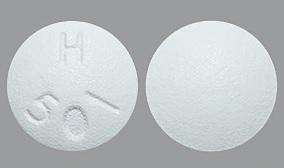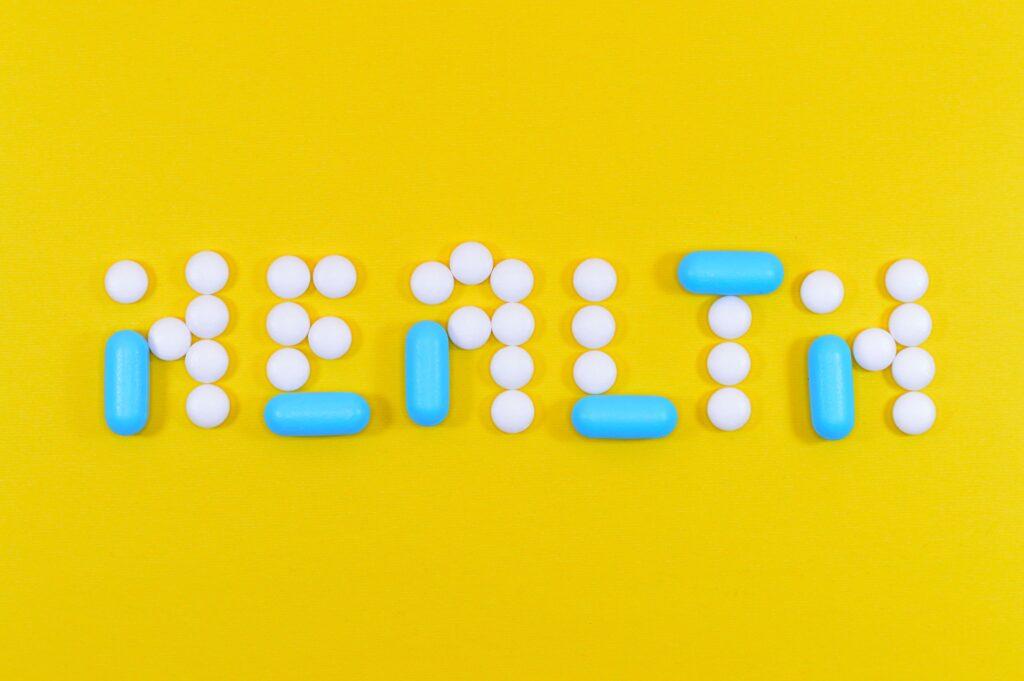How Long Does Hydroxyzine Stay In Your System?
Hydroxyzine is an antihistamine to treat allergic skin reactions, anxiety, and tension. It can also be used as a sedative before or after general anesthesia.
Hydroxyzine will stay in your system for about 100 hours, on average, but its clinical effect may wear off before this time. Hydroxyzine has a half-life of about 20 hours. The half-life of a drug is the time it takes for the plasma (blood) concentration to be reduced by 50% from its original value.
However, the duration of action of hydroxyzine may vary depending on the dose, the individual, and the condition being treated. Some sources suggest that hydroxyzine wears off in 3 to 6 hours, while others say it can last for over 24 hours in some people.
Hydroxyzine may cause side effects such as drowsiness, dry mouth, headache, or dizziness. It may also impair your thinking or reactions, so be careful if you drive or do anything that requires you to be alert. Hydroxyzine can also cause a severe heart problem, mainly if you use certain medicines simultaneously. Tell your doctor about all your current medicines and any you start or stop using.
You should not use hydroxyzine if you are allergic to it or have certain medical conditions such as long QT syndrome, glaucoma, heart disease, or electrolyte imbalance. Hydroxyzine may also harm the unborn baby or cause birth defects. Talk to your doctor before using hydroxyzine if you are pregnant or breastfeeding.
This is not a complete list of information about hydroxyzine. Please consult your doctor or pharmacist for more details and advice. Do not use this medicine without a prescription or medical supervision.
Hydroxyzine Half Life
Hydroxyzine is an antihistamine to treat allergic skin reactions, anxiety, and tension. It can also be used as a sedative before or after general anesthesia.
The half-life of a drug is an estimate of the time it takes for the concentration or amount of the drug in your body to be reduced by exactly one-half (50%). The symbol for the half-life is t½.
Knowing the half-life of a drug is essential for determining how often to take the drug, how long it will take to reach a steady state in your body, and how long it will take to be eliminated from your body. It can also help you avoid drug interactions, side effects, and overdose.
Hydroxyzine has a half-life of about 20 hours for adults. This means that after 20 hours, you will have 50% of the original amount of hydroxyzine left in your body. After another 20 hours, you will have 25% left, and so on.
However, the duration of action of hydroxyzine may vary depending on the dose, the individual, and the condition being treated. Some sources suggest that hydroxyzine wears off in 3 to 6 hours, while others say it can last for over 24 hours in some people.
Hydroxyzine may cause side effects such as drowsiness, dry mouth, headache, or dizziness. It may also impair your thinking or reactions, so be careful if you drive or do anything that requires you to be alert. Hydroxyzine can also cause a severe heart problem, primarily if you use certain medicines simultaneously. Tell your doctor about all your current medicines and any you start or stop using.
You should not use hydroxyzine if you are allergic to it or have certain medical conditions such as long QT syndrome, glaucoma, heart disease, or electrolyte imbalance. Hydroxyzine may also harm the unborn baby or cause birth defects. Talk to your doctor before using hydroxyzine if you are pregnant or breastfeeding.
This is not a complete list of information about hydroxyzine. Please consult your doctor or pharmacist for more details and advice. Do not use this medicine without a prescription or medical supervision.

Skip To:
Learn More:
- Can You Mix Hydroxyzine and Alcohol? Can You Take Hydroxyzine With Alcohol? Hydroxyzine Interactions with Alcohol Dangers & Effects.
- How Long Does Klonopin Stay In Your System?
- How Long Does Ativan Stay In Your System?
- How Long Does Flexeril Stay In Your System?
- How Long Does Phentermine Stay In Your System?
- What Is A Prescription Pill Detox Program?
- Prescription Drugs Addiction Causes & Symptoms
Get Help. Get Better. Get Your Life Back.
Searching for Accredited Drug and Alcohol Rehab Centers Near You?
Even if you have failed previously and relapsed, or are in the middle of a difficult crisis, we stand ready to support you. Our trusted behavioral health specialists will not give up on you. When you feel ready or just want someone to speak to about therapy alternatives to change your life call us. Even if we cannot assist you, we will lead you to wherever you can get support. There is no obligation. Call our hotline today.
(844) 597-1011How Long Does Hydroxyzine Stay In Your System? Popular FAQs
-
How Long Does Hydroxyzine 25 Mg Stay In Your System?
Hydroxyzine 25 mg is a standard dose of this antihistamine that can be used to treat allergic skin reactions, anxiety, and tension. It can also be used as a sedative before or after general anesthesia. Hydroxyzine has a half-life of about 20 hours for adults. This means that after 20 hours, you will have 50% of the original amount of hydroxyzine left in your body. After another 20 hours, you will have 25% left, and so on.
-
How Long Does Hydroxyzine 10mg Stay In Your System?
Hydroxyzine 10 mg is a lower dose of this antihistamine that can be used to treat allergic skin reactions, anxiety, and tension. It can also be used as a sedative before or after general anesthesia. Hydroxyzine 10 mg may stay in your system for a few hours to several days, depending on various factors.
Hydroxyzine Factsheet
Hydroxyzine Overview
Hydroxyzine is an antihistamine medication for itching, anxiety, and nausea. It works by blocking the effects of histamine, a natural chemical that causes allergic reactions. Hydroxyzine can also be used as a sedative before or after surgery. Hydroxyzine is available by prescription only and can cause side effects such as drowsiness, dry mouth, and heart problems.
How long does hydroxyzine stay in your system? It should not be used by people who are allergic to it or have certain medical conditions. Hydroxyzine has a half-life of about 20 hours, which means it takes about that long for half of the drug to leave the body. However, the effects of hydroxyzine may last longer or shorter depending on the dose and the individual.
Hydroxyzine Withdrawal Symptoms
Hydroxyzine withdrawal symptoms are not familiar or severe, as this medication is not known to cause physical dependence or addiction. However, some people may experience a rebound of anxiety, insomnia, or itching when they stop taking hydroxyzine, especially if they have been using it for a long time or at high doses.
These symptoms are usually mild and temporary and can be managed by gradually tapering off the medication under a doctor’s supervision. Some people may also experience side effects from hydroxyzine while taking it, such as drowsiness, dry mouth, headache, or dizziness. These side effects are usually mild and go away with time or by adjusting the dose.
Hydroxyzine Side Effects
- Sedation: You might feel drowsy or sleepy or have trouble focusing while taking hydroxyzine. This can affect your ability to drive or do other tasks that require alertness. This side effect is more common than with other medications used for anxiety.
- Dry mouth: Hydroxyzine can reduce the production of saliva in your mouth, which can make it feel dry and uncomfortable. You can try drinking water, chewing gum, or sucking on hard candy to relieve this side effect.
- Nausea: Hydroxyzine can sometimes make you feel sick, especially if you take it on an empty stomach. You can take it with food or milk to prevent or reduce nausea.
- Headache: Hydroxyzine can cause a mild headache in some people. You can try taking a pain reliever such as acetaminophen or ibuprofen to ease the pain.
- Dizziness: Hydroxyzine can lower your blood pressure and make you feel dizzy or lightheaded when you stand up. You can try getting up slowly and holding on to something for support to prevent falls.
- Heart problems: Hydroxyzine can affect the electrical activity of your heart and cause a severe condition called QT prolongation, which can lead to irregular heartbeats, fainting, or even sudden death.
This is more likely to happen if you have a history of heart problems, use certain other medications, or have low levels of potassium or magnesium in your blood. You should tell your doctor about all your medicines and get regular electrocardiograms (ECGs) to monitor your heart while taking hydroxyzine.
Hydroxyzine Statistics
Hydroxyzine is an antihistamine medication used to treat itching, anxiety, and nausea. It has been on the market since 1956 and is still widely prescribed today. Here are some interesting statistics about hydroxyzine that you may not know.
10 million
Hydroxyzine was the 70th most commonly prescribed medication in the United States in 2020, with over 10 million prescriptions.
Source: NCBI
The most commonly used antihistamine
Hydroxyzine is one of the most commonly used antihistamines for allergic conditions, such as chronic urticaria, atopic or contact dermatoses, and histamine-mediated pruritus.
Source: NCBI
Cardiac Arrhythmia
Hydroxyzine has a potential risk of QT interval prolongation and cardiac arrhythmia events, confirmed by clinical and post-marketing data.
Source: European Medicines Agency

Get Your Life Back
Find Hope & Recovery. Get Safe Comfortable Detox, Addiction Rehab & Dual Diagnosis High-Quality Care.
Hotline(844) 597-1011
How Long Does Hydroxyzine Stay In Your System For Anxiety?
Hydroxyzine is an antihistamine medication that can be used to treat anxiety and tension. It works by blocking the effects of histamine, a natural chemical that causes allergic reactions and stimulates the brain. Hydroxyzine is rapidly absorbed from the gastrointestinal tract and works very fast.
The onset of action occurs between 15 and 60 minutes of taking the drug, and its duration of action is between 4 to 6 hours. The maximum effect will be felt around 2 hours after taking the medication1. However, the effects of hydroxyzine may vary depending on the dose, the individual, and the condition being treated.
Some people may feel more relaxed and sleepy, while others may feel more alert and energetic. Hydroxyzine can also cause side effects such as drowsiness, dry mouth, headache, or dizziness. People with heart problems, glaucoma, or electrolyte imbalance should not use it. Hydroxyzine should be used only as prescribed and under medical supervision.
First-class Facilities & Amenities
World-class High-Quality Addiction & Mental Health Rehabilitation Treatment
Rehab Centers TourRenowned Addiction Centers. Serene Private Facilities. Inpatient rehab programs vary.
Addiction Helpline(844) 597-1011Proven recovery success experience, backed by a Team w/ History of:
15+
Years of Unified Experience
100s
5-Star Reviews Across Our Centers
10K
Recovery Success Stories Across Our Network
- Low Patient to Therapist Ratio
- Onsite Medical Detox Center
- Comprehensive Dual-Diagnosis Treatment
- Complimentary Family & Alumni Programs
- Coaching, Recovery & Personal Development Events
Does Hydroxyzine Build Up In Your System?
Hydroxyzine is generally not known to accumulate or build up in the body over time. It is classified as a short-acting medication, meaning its effects are typically felt for a limited duration.
After taking hydroxyzine undergoes various processes in the body, including absorption, distribution, metabolism, and elimination. The drug is metabolized by the liver and primarily eliminated through the kidneys through metabolites. The half-life of hydroxyzine, which is the time it takes for half of the drug to be eliminated from the body, is reported to be around 20-25 hours in adults.
Due to its relatively short half-life, hydroxyzine is not expected to accumulate significantly in the system with regular use. However, it is essential to note that age, liver function, kidney function, and dosage frequency can influence the drug’s clearance from the body.

World-class, Accredited, 5-Star Reviewed, Effective Addiction & Mental Health Programs. Complete Behavioral Health Inpatient Rehab, Detox plus Co-occuring Disorders Therapy.
CALL(844) 597-1011End the Addiction Pain. End the Emotional Rollercoaster. Get Your Life Back. Start Drug, Alcohol & Dual Diagnosis Mental Health Treatment Now. Get Free No-obligation Guidance by Substance Abuse Specialists Who Understand Addiction & Mental Health Recovery & Know How to Help.
We Level Up Dual Diagnosis Treatment
We Level Up is a reputable rehabilitation center with a reputation for excellence in addiction and co-occurring mental health treatment. The facility sets itself apart from others by its comprehensive approach, which integrates evidence-based therapies, expert medical care, and a holistic perspective to offer a complete and adequate path to recovery for individuals suffering from substance abuse and mental health disorders. The facility aims to provide its clients with physical and psychological healing and spiritual and emotional growth.
We Level Up employs various therapeutic techniques as part of their treatment approach, ensuring that each individual receives the best care for their situation. The main component of their program is individual counseling, where skilled therapists create a caring and supportive environment for individuals to explore the root causes of their addiction and deal with any emotional issues that exacerbate their difficulties. This one-on-one therapy allows customized attention and tailored treatment plans to suit each individual’s needs, goals, and preferences.
The therapists use various modalities, such as cognitive-behavioral therapy, dialectical behavior therapy, motivational interviewing, and trauma-focused therapy, to help individuals change the negative thoughts, feelings, and behaviors that fuel their addiction and mental health problems.
In addition to individual counseling, We Level Up offers group therapy, family therapy, educational sessions, relapse prevention training, and aftercare planning as part of their comprehensive program. These services help individuals develop coping skills, social support, self-esteem, and a sense of purpose and direction in life. The facility also provides expert medical care, including detoxification, medication management, and psychiatric evaluation and treatment, to address any physical or mental health issues that may interfere with recovery.
Furthermore, the facility adopts a holistic perspective that recognizes the importance of addressing the whole person, not just the symptoms of addiction and mental health disorders. The facility offers various holistic services, such as yoga, meditation, acupuncture, massage therapy, art therapy, music therapy, and nutritional counseling, to enhance the well-being of the body, mind, and spirit of its clients.
Experience Transformative Recovery at We Level Up Treatment Centers.
See our authentic success stories. Get inspired. Get the help you deserve.
Start a New Life
Begin with a free call to an addiction & behavioral health treatment advisor. Learn more about our dual-diagnosis programs. The We Level Up Treatment Center Network delivers recovery programs that vary by each treatment facility. Call to learn more.
- Personalized Care
- Caring Accountable Staff
- World-class Amenities
- Licensed & Accredited
- Renowned w/ 100s 5-Star Reviews
We’ll Call You
How Long Does Hydroxyzine Stay In Your System? Watch The Prescription Drug Abuse & Prescription Medication Addiction Recovery & Sobriety Story Informative Video
Video Script
“I wanted my life back. I was a shell of a person. I wanted to be trusted; I wanted relationships back that I lost, mainly my children and family. It started innocent enough, I got into a car accident, and then I got sucked into the whole, you know, medication issue with the pills. And before I knew it, I was in a cloud. I was sucked in by addiction, and with my mind, I kept thinking it was OK because a doctor was prescribing this for me, a doctor was giving me this, a doctor was giving me that.
So, I didn’t think I was doing anything wrong. Level Up supports my family and my relationships with my family, and they’ve helped me grow as a person. When I first started there, I was so intimidated and scared, you know? But, they’ve taught me, they’ve taught me how to come into my own. And then, you know, when I get the call from my twenty-one-year-old daughter in the middle of the day, to say ‘I love you, Mom.’ that’s amazing.”
Jen’s Addiction Recovery Testimonial.
Search We Level Up How Long Does Hydroxyzine Stay In Your System? Resources
Sources
- National Center for Biotechnology Information (NCBI) – Hydroxyzine: A Drug Safety Evaluation: https://www.ncbi.nlm.nih.gov/pmc/articles/PMC4110836/
- Food and Drug Administration (FDA) – Hydroxyzine Prescribing Information: https://www.accessdata.fda.gov/
- Centers for Disease Control and Prevention (CDC) – Prescription Drug Overdose: Hydroxyzine: https://www.cdc.gov/
- National Institute on Drug Abuse (NIDA) – Hydroxyzine DrugFacts: https://www.drugabuse.gov/publications/drugfacts/hydroxyzine
- Substance Abuse and Mental Health Services Administration (SAMHSA) – Medication-Assisted Treatment: Hydroxyzine: https://www.samhsa.gov/
- National Institutes of Health (NIH) – Hydroxyzine: MedlinePlus Drug Information: https://medlineplus.gov/druginfo/meds/a682866.html
- U.S. Department of Health and Human Services – MentalHealth.gov: Understanding Hydroxyzine and Its Effects: https://www.mentalhealth.gov/what-to-look-for/mental-health-medications/hydroxyzine
- Drug Enforcement Administration (DEA) – Controlled Substance Schedules: https://www.deadiversion.usdoj.gov/schedules/
- U.S. National Library of Medicine – Hydroxyzine Overdose: https://medlineplus.gov/ency/article/002684.htm
- National Highway Traffic Safety Administration (NHTSA) – Drug and Human Performance Fact Sheets: Hydroxyzine: https://one.nhtsa.gov/


